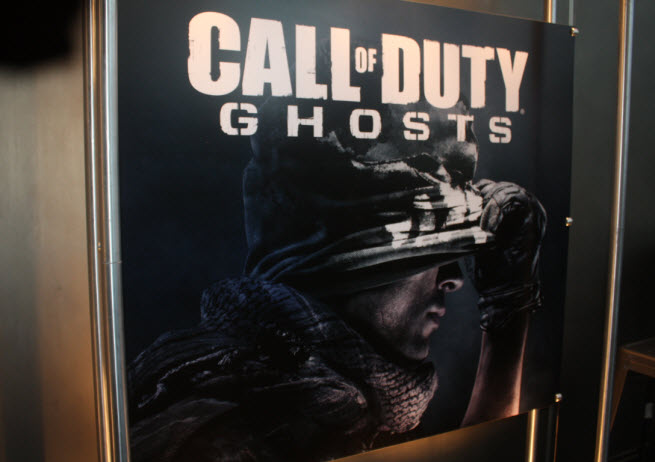GamesBeat: You’re designing this for new hardware. This hardware may or may not be in different states of readiness. I think they usually find out toward the end of the process whether they really hit their performance targets or not. Are the chips really running that fast, or are they too hot? It seems like you almost need a contingency plan to make sure you hit 60 frames per second. What if it comes out, and it winds up that you can only do 57?
Suarez: One of the benefits that we have, being Call of Duty, is that our partners on the first-party side really want us to be the benchmark game for their system. They want our game to look the best on their platform. There’s a lot of early collaboration in terms of seeing where the chipsets are going, understanding where those raw parts are going, doing tests with them, and understanding how that all works. We’re going to have a pretty good sense of where we’re going to be. That’s just refining over time.
The people that we have working on this, from the Infinity Ward side and on the supporting teams we have working with them, have been through console transitions before. They know and understand what needs to happen – when those things will change, when new APIs come in, what impact that entails for their development. They need to be fluid and understand those things, but I think our relationships with the first parties have us set in a good position to allow us to execute our vision and have a 60 frames per second game running on a networked system. We’ll be able to deliver that hallmark Call of Duty multiplayer experience out of the box on day one.
GamesBeat: Do you have a technology system that can scale up to fit whatever hardware it’s running on? Or does it almost feel like you have to design one game for current consoles and a brand-new game for next-gen hardware?
Suarez: We’re not doing that right now. Right now, we’re developing and pushing the boundaries of next gen as much as we can, but keeping in mind that we’re going to take that technology and get it to fit on the current generation. That’s why we have the teams that we have, to be able to cover those bases. For us, the number one goal is to get the best-looking game running on the next generation. Then we’ll ensure that we get a game running on current consoles that delivers all the bells and whistles that we can. But there are going to be differences.
GamesBeat: Will you be able to do things like have a multiplayer match between generations?
Suarez: Cross-generational multiplayer gaming is not something we have talked about. I don’t think it’s something we’ll be able to do. If the first parties allow it, we might consider it.
GamesBeat: It does sound like it makes sense to do very robust versions of each one. It’s almost doubling the amount of teams you have to use.
Suarez: The structure we have for the development of Ghosts is that we have Infinity Ward leading the development on the creative side and driving everything for the multiplayer and everything else. We have Raven also helping out on this. They’ve been a supporting team on the franchise now for a number of years. We’ve added Neversoft as well. This is their first time on the franchise, but they have a lot of experience working on console transitions dating back to the PSX, understanding all the technical logistics that need to happen there. Both of those teams are supporting IW on the current-gen and next-gen execution, with Infinity Ward leading the development going forward.
GamesBeat: The complexity of this business is going up and up.
Suarez: The point I made to someone earlier – [Activision CEO] Eric [Hirshberg] said this as well – is that engagement on the games, sales of the games, daily average users, all of that is the biggest it’s ever been for the franchise. When you think of 30 million or 40 million playing Call of Duty on a monthly basis, it’s mind-boggling how many people we have engaged in this franchise. For us, we have to deliver the best game we can year over year, ensuring that the gameplay is there, the narrative is there, that emotional experience they expect out of Call of Duty is there. I know you play a lot of MP. It’s fun, it’s exciting, you really want to go in and compete. That has to be there. Getting a large group of people to support that vision every year is critical to our business.
GamesBeat: There’s going to be more competition than ever for the second half.
Suarez: Console transitions are always a challenge, but that’s what makes this job fun. Everybody will work hard. It’ll be exciting. We haven’t seen this happen in a number of years. It’ll be fun to see what the first parties are putting out, seeing what the systems can do. Even seeing what the competition is doing will be interesting. People always ask us, “Are you nervous about what so-and-so is doing?” No. From a gamer’s perspective, those are the things that challenge us and make our games better. We’re waiting to see if someone comes up with something innovative and new. That’s going to challenge us to do even better the next time.
VentureBeat's mission is to be a digital town square for technical decision-makers to gain knowledge about transformative enterprise technology and transact. Learn More

